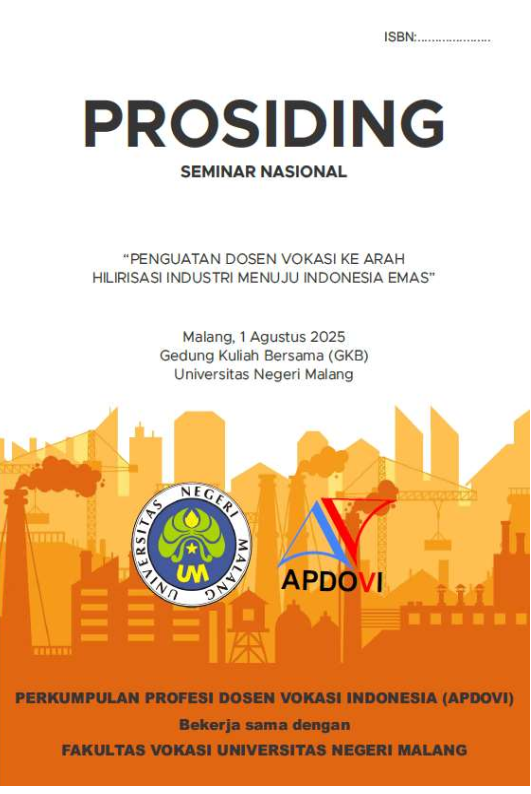Pengaruh Afeksi, Kognisi, Dan Strategi Pemasaran Terhadap Keputusan Pembelian Konsumen
Studi Kasus Pada “Co-Branding Redbull Dan Gopro”
Kata Kunci:
Co-branding, Affectiom, Cognition, Marketing Strategy, Consumer BehaviorAbstrak
Penelitian ini menyelidiki pengaruh afeksi, kognisi, dan strategi pemasaran terhadap keputusan pembelian konsumen dalam konteks co-branding, khususnya antara RedBull dan GoPro. Menggunakan pendekatan kuantitatif dengan sampel 200 responden, data dikumpulkan melalui kuesioner online dan dianalisis menggunakan regresi linier berganda. Hasil penelitian menunjukkan bahwa ketiga variabel tersebut secara signifikan mempengaruhi keputusan pembelian, dengan affect sebagai faktor yang paling dominan. Temuan ini menunjukkan bahwa keterlibatan emosional, evaluasi rasional, dan promosi strategis secara kolaboratif membentuk respon konsumen terhadap produk co-branded. Penelitian ini berkontribusi pada literatur pemasaran dengan memvalidasi peran terintegrasi dari proses afektif dan kognitif dalam strategi co-branding dan menawarkan wawasan praktis bagi para manajer merek yang ingin memanfaatkan isyarat emosional dan informasi untuk meningkatkan dampak pasar.
Kata kunci: Co-branding, Afeksi, Kognisi, Strategi Pemasaran, Perilaku Konsumen.
Abstract
This study investigates the effect of affection, cognition, and marketing strategy on consumer purchase decisions in the context of co-branding, specifically between RedBull and GoPro. Using a quantitative approach with a sample of 200 respondents, data were collected through an online questionnaire and analyzed using multiple linear regression. The results indicate that all three variables significantly influence purchase decisions, with affect being the most dominant factor. These findings suggest that emotional engagement, rational evaluation, and strategic promotion collaboratively shape consumer responses to co-branded products. This research contributes to marketing literature by validating the integrated role of affective and cognitive processing in co-branding strategies and offers practical insights for brand managers seeking to leverage emotional and informational cues to enhance market impact.
Keyword: Co-branding, Affectiom, Cognition, Marketing Strategy, Consumer Behavior
Referensi
Ali, B. J., & Anwar, G. (2021). Marketing strategy: Pricing strategies and its
influence on consumer purchasing decision. International Journal of Rural
Development, Environment and Health Research, 5(2), 26–39.
https://doi.org/10.22161/ijreh.5.2.4
(Also available at SSRN: https://ssrn.com/abstract=3837579)
Chen, S., Benedicktus, R., Kim, Y., & Shih, E. (2018). Teaching design
thinking in marketing: Linking product design and marketing strategy in a product
development class. Journal of Marketing Education, 40(3), 176–187.
https://doi.org/10.1177/0273475317753678
Cohen, J. B. (1990). Attitude, affect, and consumer behavior. In B. S. Moore
& A. M. Isen (Eds.), Affect and social behavior (pp. 152–206). Cambridge University
Press.
Goodman, M., Hansen, T., & Keller, K. L. (Eds.). (2019). Marketing
management: European edition (1st ed.). Pearson Education.
Kaur, D., Mustika, M. D., & Sjabadhyni, B. (2018). Affect or cognition:
Which is more influencing older adult consumers' loyalty? Heliyon, 4(4), e00667.
https://doi.org/10.1016/j.heliyon.2018.e00667
Kotler, P., & Keller, K. L. (2016). Marketing management (15th ed.).
Pearson.
Li, D., Wang, C. L., Jiang, Y., Barnes, B. R., & Zhang, H. (2014). The
asymmetric influence of cognitive and affective country image on rational and
experiential purchases. European Journal of Marketing, 48(11/12), 2153–2175.
https://doi.org/10.1108/EJM-09-2012-0505
Lim, S. H., & Kim, D. J. (2020). Does emotional intelligence of online
shoppers affect their shopping behavior? From a cognitive-affective-conative
framework perspective. International Journal of Human–Computer Interaction,
36(14), 1304–1313. https://doi.org/10.1080/10447318.2020.1749784
Park, C. W., MacInnis, D. J., & Priester, J. (2006). Beyond attitudes:
Attachment and consumer behavior. Seoul Journal of Business, 12(2), 3–35.
Peña-García, N., Gil-Saura, I., Rodríguez-Orejuela, A., & Siqueira-Junior, J.
R. (2020). Purchase intention and purchase behavior online: A cross-cultural
approach. Heliyon, 6(6), e04284. https://doi.org/10.1016/j.heliyon.2020.e04284
Peter, J. P., & Olson, J. C. (2010). Consumer behavior & marketing strategy
33
(9th ed.). McGraw-Hill Irwin.
Rahardjo, W., & Silalahi, B. Y. (2012). Perilaku konsumtif pada pria
metroseksual serta pendekatan dan strategi yang digunakan untuk
mempengaruhinya. Jurnal Psikologi, 39(1), 72–85.
Schiffman, L. G., & Wisenblit, J. (2019). Consumer behavior (12th ed.).
Pearson.
Tjiptodjojo, K. I. (2012). Odd price: Harga, psikologi dan perilaku konsumen
dalam purchase decision making. Jurnal Manajemen Maranatha, 11(2), 89–98.
Tooy, S. M. (2015). Analisis perbedaan perilaku impulse buying konsumen
laki-laki dan perempuan berdasarkan proses afektif dan kognitif. Jurnal Riset Bisnis
dan Manajemen, 3(2), 153–165.
Zulfaqar, M., & Baig, T. (2024). Moderating impact of drive for
environmental responsibility between cognition, affection, and conation and green
products purchase decisions. Journal of Entrepreneurship, Management, and
Innovation, 6(1), 1–34.


